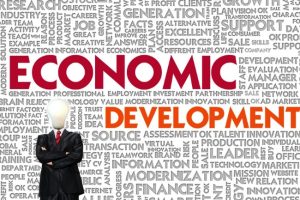 Massachusetts came under the spotlight of the gambling scene with its 2 new gambling venues, and more precisely MGM Springfield (slated to open its doors in 2018) and Wynn Boston Harbor (scheduled to start operating in 2019). The local legislators projected that the 2 gambling venues can generate tens of millions dollars revenue income for the local coffers, securing a big cash injection to the local economy. At a hearing, which took place yesterday, the Springfield policymakers considered a number of proposals on how to budget the money wisely, investing in the local development.
Massachusetts came under the spotlight of the gambling scene with its 2 new gambling venues, and more precisely MGM Springfield (slated to open its doors in 2018) and Wynn Boston Harbor (scheduled to start operating in 2019). The local legislators projected that the 2 gambling venues can generate tens of millions dollars revenue income for the local coffers, securing a big cash injection to the local economy. At a hearing, which took place yesterday, the Springfield policymakers considered a number of proposals on how to budget the money wisely, investing in the local development.
On Tuesday, 19th September, the state Joint Committee on Economic Development held a hearing at Springfield Technical Community College in Springfield, with state Sen. Eric P. Lesser, D-Longmeadow, and state Rep. Joseph Wagner, D-Chicopee presiding over the panel. The main purpose of the meeting was to discuss the way in which the money generated from the gambling activities should be distributed.
Investment Proposals Summary
 Among all the proposals, Richard K. Sullivan Jr., CEO of the Western Massachusetts Economic Development Council, suggested that certain amount of the money should be invested in the further development of the local Pioneer Valley as it is a popular year-round tourist destination and it can invigorate the local tourism sector. This, on the other hand, will also contribute to the city’s economic growth, reviving also the small- and medium-sized business.
Among all the proposals, Richard K. Sullivan Jr., CEO of the Western Massachusetts Economic Development Council, suggested that certain amount of the money should be invested in the further development of the local Pioneer Valley as it is a popular year-round tourist destination and it can invigorate the local tourism sector. This, on the other hand, will also contribute to the city’s economic growth, reviving also the small- and medium-sized business.
The panel also paid attention to the social and economic challenges, which Massachusetts gateway cities (11 cities in the urban area of the state) are facing for years. It was suggested that a share of the revenues generated by the city’s gambling activities can be invested in regional economic development and business regulation. Yet another prospect, which the legislators discussed was the possibility to invest also in education and training of the labor force. The state Legislature will have the hard task to decide how the casino money will be spent when crafting the state budget for 2019 or 2020.
According to their agreement with the state, both casino operators are to pay 25% tax on their turnover per year. The state’s lawmakers already decided that 9.5% of that amount will be used to finance various programs, dedicated to supporting the local economic development. Mr. Sullivan forecast that tens of millions of dollars should enter the economic development purse.
State Rep. Bud L. Williams also recommended that a Western Massachusetts Balanced Sustainable Development Commission should be created. The main purpose of the suggested commission will be to bring together representatives from all sectors, which the legislators consider to financially support with the casino money. In that way, the directly involved parties can join forces with the lawmakers to develop comprehensive plans and programs for the further development of the different sectors.



















